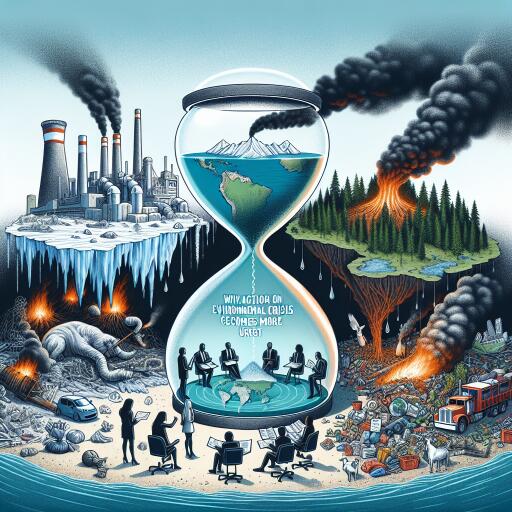
Global Urgency to Tackle Environmental Crises: The Call for Restoration and Nature-Based Solutions
As the world marked an unprecedentedly engaged World Environment Day in 2024, the focus turned sharply towards the growing environmental crises threatening our planet. With over 3,900 events sparking global conversation and participation, the public’s demand for effective actions against land degradation, desertification, and climate extremes has never been clearer. The 2024 theme emphasized land restoration, augmenting drought resilience, and an intensified fight against desertification, drawing unprecedented attention worldwide.
The global narrative, shaped by the United Nations Environmental Programme (UNEP), underscores the dire need for substantive commitments towards reversing the damage to our planet’s biodiversity and ecosystems. The true essence of the day’s observance lies in harnessing land restoration as a pivotal strategy, a recurring theme echoed by the UNEP’s Executive Director. Highlighted as a critical pathway interlinking various global environmental commitments, the push for restoring land is not just about combating climate change but also about bolstering communities against extreme weather events, enhancing livelihoods, and paving the way towards sustainable development goals.
The comprehensive agenda set by the UNEP includes a recall of the resolutions adopted during the United Nations Environment Assembly, which targets a globally resonant plea for implementing nature-focused solutions to environmental challenges. Among the resolutions are initiatives aimed at improving air quality, tackling mineral and waste management, combating desertification, and promoting sustainable land management practices. These are envisioned as vital steps towards achieving broader global targets such as the Paris Agreement and the Kunming-Montreal Global Biodiversity Framework.
In light of World Environment Day, Nigeria, grappling with its environmental challenges, spotlighted the urgent need for sustainable land use and the enforcement of land tenure rights. Stressed by the adverse effects of deforestation, unsustainable agricultural practices, and climate change impacts, Nigeria’s call to action resonates with the global imperative to address environmental degradation head-on. The significance of nature-based solutions (NBS) has been particularly emphasized, presenting a viable path to not only mitigate environmental challenges but also to preserve the biodiversity that contributes over $8 billion annually to the global economy.
The engagement for this global day does not stop at governmental pledges but extends into civil society, where organizations like the Health of Mother Earth Foundation urge for immediate, concrete action towards environmental restoration. The foundation’s stance on declaring a state of emergency on the environment underlines the urgency of halting biodiversity loss, deforestation, and land degradation. This is a clarion call to all stakeholders to embark on robust, actionable plans for ecosystem restoration, demonstrating a united front against the exploitation and unsustainable management of nature’s bountiful resources.
This collective action is critical, as emphasized by experts and environmentalists alike. Only through concerted efforts can we ensure the livelihoods of communities, protect biodiversity, and secure a sustainable future for the generations to come. As countries globally took a stand this World Environment Day, the resounding message was clear: the time to convert commitment into action is now, stressing the importance of integrating environmental considerations in every facet of planning and policy-making.
The resonance of World Environment Day is a beacon of hope, illustrating the potential for global unity in addressing the pressing environmental crises at hand. It serves as a reminder that our shared home requires immediate and decisive action, and our choices today will define the legacy we leave for future generations. As we move forward, the world stands at a critical juncture, with the knowledge that only through a collective resolve to cherish and restore our planet can we hope to flourish together.
As discussions continue and plans turn into actions, the global commitment to environmental restoration and nature-based solutions marks a pivotal moment in our fight against climate change and ecological degradation. This is a battle we cannot afford to lose, for our planet’s health, biodiversity, and the very essence of human survival hinge on the actions we take today.





Leave a Reply